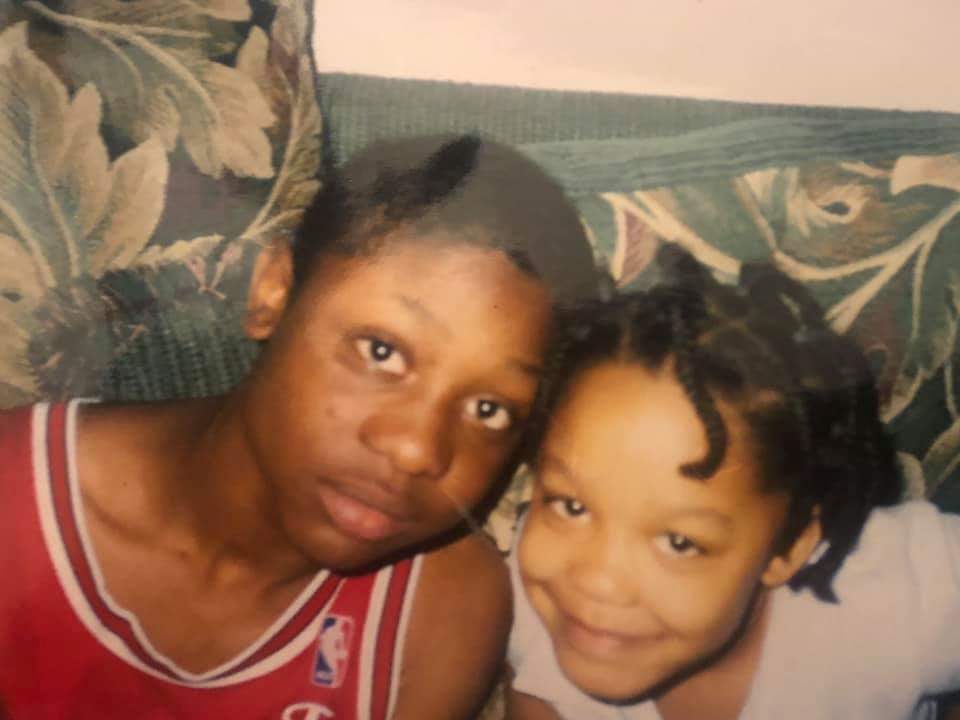How to Play Music: A Quick Guide

Music has always been a significant part of human culture, a universal language that transcends boundaries and brings people together. Learning to play music offers numerous benefits, from boosting cognitive abilities to providing a creative outlet for self-expression. Whether you’re a budding musician or a seasoned artist looking to refine your skills, understanding the foundational elements of playing music is crucial.
Embarking on this musical journey requires a blend of curiosity, dedication, and patience. You might ask, “Where do I start?” The answer lies in grasping the basic concepts of rhythm, melody, and harmony. These three pillars form the bedrock of music theory, guiding you through the complexities of musical composition and performance. As you delve deeper, you’ll discover the joys of creating sounds that resonate not only with others but also with your inner self.
In this guide, we aim to provide you with a comprehensive overview of the essential techniques and tips to kickstart your musical adventure. From choosing the right instrument to mastering the art of practice, every step you take will bring you closer to becoming the musician you aspire to be. So, grab your instrument, open your mind, and get ready to dive into the wondrous world of music. Adventure NoWwww and explore the new age of entertainment with us at obij12.com!
Essential Tools for Music Beginners

As you begin your journey to play music, equipping yourself with the right tools is crucial for a smooth and enjoyable experience. The world of music offers a vast array of instruments and accessories, but as a beginner, it’s important to focus on the essentials that will support your learning process.
First and foremost, selecting a musical instrument that resonates with your interest is paramount. Whether it’s a guitar, piano, violin, or drums, choose an instrument that you feel excited to learn and play. Once you’ve chosen your instrument, ensure that it’s of good quality and properly tuned, as this will significantly affect the sound you produce and your overall progress.
In addition to the instrument, having a reliable tuner is essential, especially for string instruments. A tuner helps maintain the correct pitch, ensuring your music sounds as intended. For those learning the piano, consider investing in a digital or acoustic piano with weighted keys to simulate the feel of an actual piano.
Another indispensable tool is a metronome, which helps you develop a strong sense of timing by providing a steady beat to play along with. This can be a physical device or a digital app on your smartphone. Furthermore, don’t forget to acquire sheet music or access to music notation software, as these will guide you through learning new pieces and understanding music theory.
Lastly, a comfortable practice space with good acoustics and minimal distractions can make your practice sessions more effective. As you gather these tools, remember that they are aids in your musical journey, helping you build the skills needed to enjoy and share the beauty of music.
Understanding Basic Music Theory

Embarking on the quest to play music is not just about mastering an instrument, but also about understanding the language of music itself. Basic music theory forms the foundation that allows musicians to communicate ideas, compose melodies, and improvise effectively. Diving into music theory can seem daunting, but starting with the basics will pave the way for a deeper appreciation and skill in your musical endeavors.
At the heart of music theory is the concept of notes, which are the building blocks of melodies and harmonies. Understanding the musical alphabet, which consists of the notes A through G, is essential. These notes repeat in a cycle and form the basis for scales and chords, which are crucial for creating music.
Scales, particularly the major and minor scales, are fundamental patterns of notes that form the backbone of melodies. A major scale, for instance, is a sequence of whole and half steps that creates a cheerful and uplifting sound. In contrast, the minor scale provides a more somber and emotional tone. Familiarizing yourself with these scales on your instrument will enhance your ability to play and compose music.
Chords, which are combinations of notes played simultaneously, add depth and harmony to music. Learning basic chords, such as major, minor, and seventh chords, will allow you to accompany melodies and play a wide variety of songs. Additionally, understanding rhythm and time signatures is crucial, as they dictate the timing and pace of music.
As you delve into basic music theory, remember that it’s a tool to enhance your musical expression. With practice, these concepts will become second nature, enabling you to explore new musical landscapes and enjoy the rich world of sound.
Choosing the Right Instrument
Choosing the right instrument is a pivotal step in your journey to play music. The instrument you select can significantly influence your learning experience and enjoyment, so it’s important to consider several factors before making a decision.
Firstly, think about the type of music you are drawn to. Different instruments lend themselves to various genres. For instance, if you’re captivated by classical music, the piano or violin might be ideal choices. If rock or pop excites you, the guitar or drums could be more suitable. Your preference in music style should guide you towards instruments that will motivate and inspire you to practice.
Consider the practicality and feasibility of learning a particular instrument. Some instruments, like the piano, require substantial space and can be costly, while others, such as the ukulele or harmonica, are more affordable and portable. Additionally, think about the noise level and the living environment; digital instruments with headphone options can be beneficial for those in shared living spaces.
Another essential factor is your personal physical comfort and aptitude. Some instruments demand specific physical capabilities; for instance, playing wind instruments requires lung capacity and breath control, while string instruments might require fine motor skills and finger dexterity. Trying out different instruments at a music store can provide insight into what feels comfortable and natural for you.
Finally, consider the learning curve and available resources for each instrument. Some instruments, like the recorder or keyboard, offer a gentler learning curve for beginners, while others, such as the violin or trumpet, may require more dedication initially. Ensure that there are sufficient learning resources, such as teachers, tutorials, and sheet music, to support your journey.
By thoughtfully selecting an instrument that resonates with you, aligns with your lifestyle, and suits your skill level, you’ll set the stage for a rewarding and fulfilling musical adventure.
Tips for Practicing Music Effectively

Once you’ve chosen your instrument, the next step is to develop an effective practice routine. Here are some tips to help you play music more efficiently and make the most of your practice sessions.
Consistency is key. Establish a regular practice schedule that fits into your daily routine. Even if you can only dedicate 15 to 30 minutes each day, maintaining a steady practice habit is crucial for progress. Regular practice helps build muscle memory and strengthens your understanding of music theory.
Set realistic goals for each practice session. Break down complex pieces into smaller, manageable sections. Focus on mastering one segment at a time, rather than trying to perfect the entire piece in one go. This approach prevents frustration and allows you to appreciate the incremental progress you make.
Incorporate variety into your practice routine to keep things interesting. Work on different aspects of your playing, such as scales, arpeggios, sight-reading, and improvisation. This not only enhances your skills but also prevents monotony, keeping you motivated.
Don’t underestimate the power of slow practice. Playing slowly allows you to focus on accuracy and technique. Once you feel comfortable at a slower pace, gradually increase the tempo. This method ensures that you maintain control and precision as you speed up.
Regularly record yourself during practice. Listening to recordings can provide valuable feedback on your progress and highlight areas that need improvement. It’s an effective way to monitor your growth and adjust your practice strategies accordingly.
Finally, ensure your practice environment is distraction-free. Find a quiet space where you can concentrate fully on your music. Turn off notifications on your devices and make sure you’re comfortable and have everything you need within reach.
By implementing these tips, you’ll be well on your way to enhancing your skills and enjoying the art of playing music more effectively.
Exploring Advanced Music Techniques

As you gain confidence and proficiency in your ability to play music, it’s time to venture into more advanced techniques that will elevate your musical expression and artistry. Delving into these sophisticated methods can significantly enhance the quality of your performances and expand your creative horizons.
One such technique is harmonic analysis. Understanding the harmonic structure of a piece allows you to make informed decisions about phrasing and improvisation. It involves dissecting chords, progressions, and scales to comprehend the underlying framework of the music. This knowledge empowers you to interpret compositions with greater depth and authenticity.
Another advanced skill is mastering dynamic control. This involves manipulating the volume and intensity of your playing to convey emotion and add dimension to your music. Practicing with a metronome and experimenting with different dynamics can refine your ability to express subtle nuances and dramatic contrasts.
Incorporating polyrhythms into your repertoire can also transform your musicality. Polyrhythms are complex rhythmic patterns that interweave different time signatures. Mastering these can be challenging but immensely rewarding, as they add a sophisticated layer to your performances and compositions.
Don’t forget to explore the world of improvisation. This is where creativity truly shines, allowing you to craft spontaneous melodies and solos. Experimenting with different styles and genres can broaden your improvisational skills and introduce you to new musical possibilities.
Finally, consider collaborating with other musicians. This not only exposes you to different playing styles and techniques but also enhances your ability to adapt and respond in a musical conversation. Jamming with others can lead to exciting discoveries and inspire new ideas.
Embrace the challenge of these advanced techniques and continue to push the boundaries of your musical abilities. As you explore these areas, remember to Adventure NoWwww. Unlock your full potential and experience the true essence of the NeW AgE of EnTeRtAiNmEnT!





Thanks for sharing. I read many of your blog posts, cool, your blog is very good.